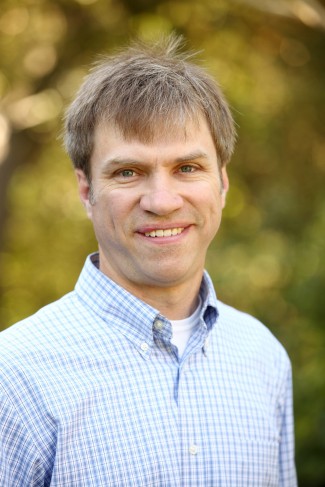Everest to Express Wonder of Chemistry
By
Westmont

Michael Everest, who joins Westmont as professor of chemistry this fall, says he is passionate about offering students a high-quality, undergraduate, liberal arts education. “It’s in my DNA,” he says. In fact his parents, Dan and Sherry (Sonneveldt) Everest, both graduated with degrees in psychology from Westmont in 1967, Sherry with a double major in education. Michael, a Wheaton College alumnus, earned his doctorate from Stanford University and most recently was professor of chemistry at George Fox University, where he taught for the past decade.
“College isn’t about job training,” he says. “College is learning about the human condition and about the world and how it works. You can specialize and do job training later. The best preparation for a particular career isn’t necessarily a degree titled with that career name.”
Everest’s research leans toward the physics end of chemistry, focusing on the use of lasers in chemistry. He returned to Oregon from Heraklion, Greece, in June 2010, following a one-year sabbatical at the Foundation for Research and Technology Hellas, where he researched the interaction of polarized light with matter.
“Chemistry is a way of knowing,” he says. “It’s a field of inquiry. It’s investigating a particular aspect of how the world works. The fact that it’s commercially useful isn’t the primary reason I’m interested in it.”
Everest, who is married with three children, hopes to instill that sense of amazement in his students. “There’s wonder and beauty in the way nature works and is put together,” he says.
He explains there’s a single principle that describes why every single chemical reaction goes forward instead of backward and why ice freezes at zero and water boils at 100 degrees Celsius.
“There’s one foundational thing,” he says. “That just amazes me. It’s beautiful that at the core there’s a truth that has all these implications when at the surface it looks like crazy stuff and unconnected observations.”
Everest has earned numerous grants, fellowships and awards, including a grant from the America Chemical Society’s Petroleum Research Fund and five faculty research grants from George Fox. He has contributed scholarly articles to Journal of Chemical Physics, Journal of Chemical Education and Review of Scientific Instruments to name a few.
Filed under
Academics, Campus News, Faculty and Staff, Press Releases